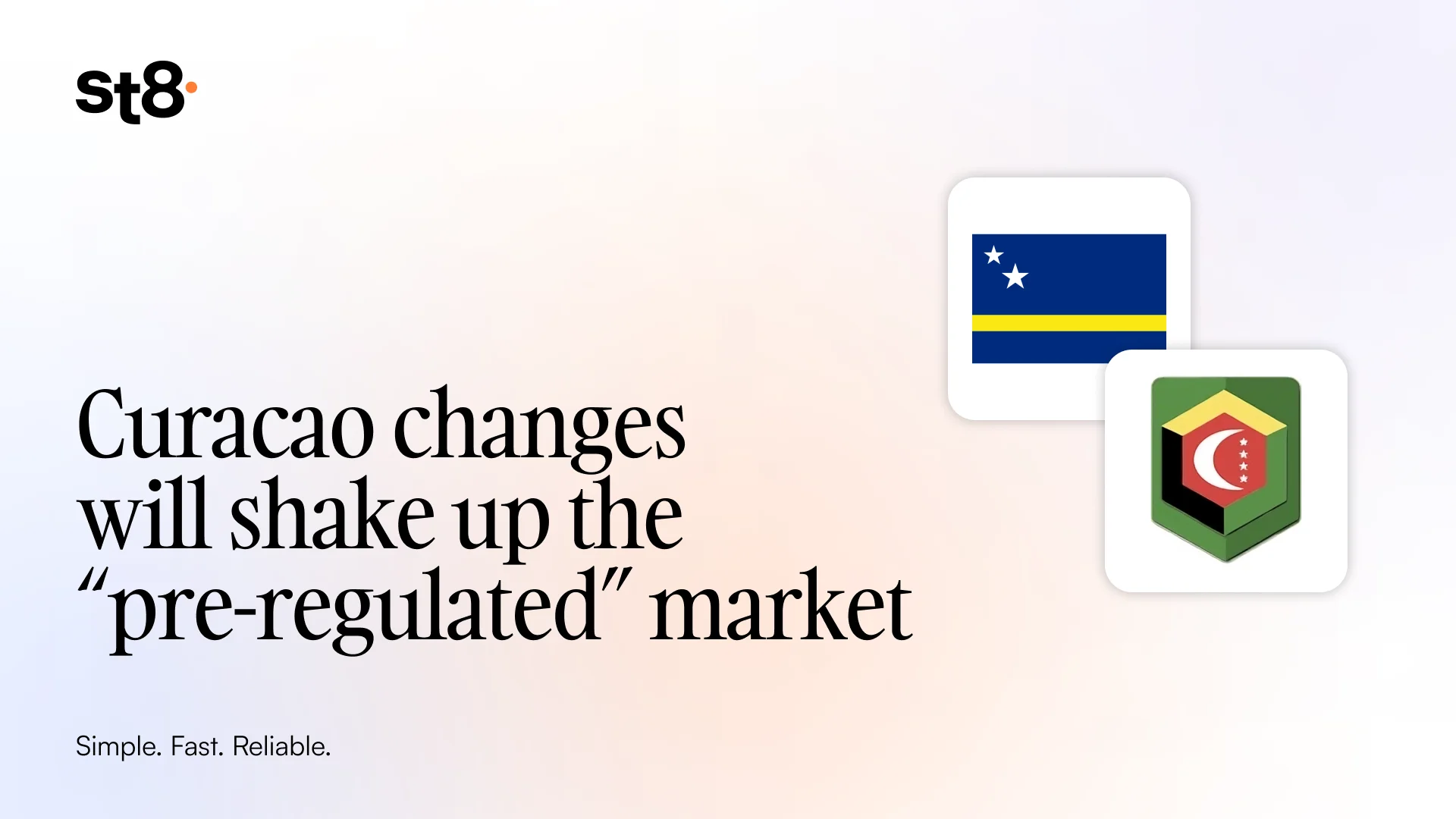Curaçao changes will shake up the “pre-regulated” market
Ever since Curaçao announced plans to overhaul its licensing regime back in 2022, operators and suppliers have watched on with some concern.
Curaçao has been an important part of the iGaming ecosystem for a long time now, even as more territories have introduced ‘dot country’ licenses and several Tier 1 operators have begun to focus solely on these markets.

For smaller to mid-sized gaming businesses, and particularly new start-ups, Curaçao has often been a gateway to bigger things.
We’re now in the midst of a major overhaul of how Curaçao licenses work, and worryingly, there’s still a lot of uncertainty.
Here’s what you need to know.
The new Curacao Gaming Control Board (GCB) is now administering the system. The old master license and sub-license system has been scrapped in favor of a direct license that can be granted only by the GCB under the new law. And the new system aims to place more importance on transparency, compliance and responsible gaming.
But the transition has been, to put things politely, a little messy.
The deadline has been extended as operators that previously relied on a sub-licence scramble have not managed to successfully apply for a direct license . This is largely due to the lack of clear application guidelines combined with very limited timeframes.
There’s been some confusion for B2B entities. Those that have direct exposure to player funds or accounts are being encouraged to apply for a B2C license. Purely B2B entities are still awaiting an announcement from the GCB on how to proceed.
In short, legal departments are likely to have a busy summer ahead, preparing documents in time for the new September deadline when previous exemptions on old licenses are set to expire.
Anjouan alternative?
Curaçao worked well for so long because it created a consensus among all stakeholders. Operators knew the territories they could target; suppliers were reassured as to who they could provide their products to; players received a degree of protection they wouldn’t get when playing at unlicensed brands.
But these changes – and the confusion that has surrounded them so far – threaten to undermine that consensus.
There’s also a danger of what I would call ‘licensing fragmentation’, as other jurisdictions seek to replace Curaçao as the multi-jurisdictional license of choice.
The main contender so far has been Anjouan, a small island in the Indian Ocean off the coast of Mozambique.
Since Curaçao began its changes, Anjouan has rapidly grown in popularity as an alternative licensing regime.
There are a few benefits. For one, it’s cheaper. But perhaps more importantly, Gaming Control Anjouan has done an excellent job in clearly stating its requirements and making the process to acquire a license simple and logical.
The interesting thing I’ve observed over the last few months is that there’s been a huge increase in the number of gambling companies applying for this license. This includes both operators and suppliers.
But consensus within the industry remains an issue. Around 20 percent of suppliers are still reluctant to give the green light to Anjouan-licensed operators, even if they do work with Curaçao-licensed ones.
Others remain understandably cautious due to the lack of clarity, dragging their feet and slowing down processes as a result.
This is bad news for all stakeholders. If we aren’t on the same page, we’ll all suffer in the long run.
Don’t get me wrong: better player protection, and appropriate AML measures are an absolutely central part of any licensing framework. We can’t compromise on this.
But we do need transparency on how this is achieved, and which licenses can best deliver it in a way that also doesn’t harm the experience for the end user.
I’ll be at CasinoBeats Summit in Malta between May 21-23 if you’d like to discuss the future of Curaçao, Anjouan and how St8.io is helping operators prepare.
Get in touch if you’d like to chat further.
Get in Touch
Want to know more? Have an amazing idea? Superb. We’d love to hear from you.
